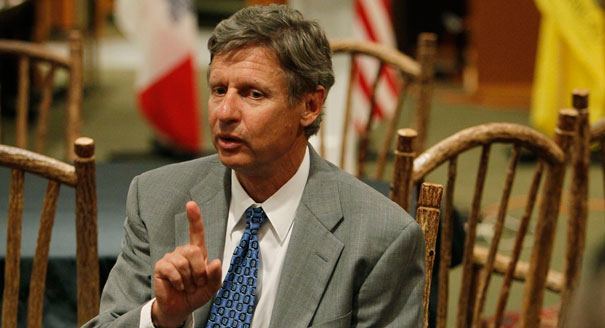
Libertarian Gary Johnson Polling Well as Voters Seeking Independent Politicians Opening Third Parties
Democracy, elections, and voting at Democracy Chronicles
Ballot Access News, a website maintained by election expert Richard Winger, usually a great place for news on third parties, has a post about Gary Johnson, Libertarian Candidate for President, polling at three percent nationally. Of course, major news outlets simply ignore anyone who is not a Democrat or Republican so this news is not everywhere like it should be but you can find the Ballot Access News article here. Or take a look:
On July 6, Gallup Polls released a poll, which includes five presidential candidates: President Obama, Mitt Romney, Gary Johnson, Jill Stein, and Virgil Goode. The poll shows support for the three minor party members as: Johnson 3%, Stein 1%, Goode under 1%. The poll did tell the respondents the party affiliation of these candidates. The poll shows President Obama at 47% and Mitt Romney at 40%. If Gary Johnson were to poll 3% in November, and 3% in each jurisdiction, then the Libertarian Party would have met the vote test for a party to remain on the ballot, for the first time ever, in Arkansas, Connecticut, District of Columbia, Iowa, and Kentucky.
There was an interesting comment on the page as well written by Kyle Kneale, that said:
While I understand Rep. Paul’s supporters and their dedication, I honestly doubt the ability of the group to overcome the convention procedures. Their method of putting sympathizers in delegate positions at state conventions is a genius way to force discussion, and opens numerous possibilities. However, Romney’s supporters (the RNC itself) are gearing to stamp out the dissension. Back to point; Part of the problem contributing to a lack of Third Party/Independent representation in the electorate is the fact that few voters actually know that there are other candidates besides the Republicans and Democrats. We can blame part of the issue on a lack of inclusion of these respective candidates in polling, surveys, and interviews.
The majority of the blame (and thus the duty to correct), however, must be put on the individual voters. Between apathy, short-sightedness, and complacency it is a system that is not conducive to legitimate representation and has little hope of being changed unless voter mindset is changed as well.
Leave a Reply